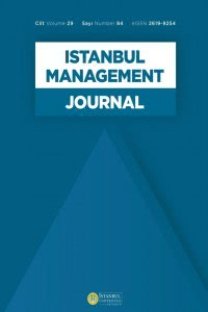GELİR YÖNETİMİNDE KAPASİTE ÜZERİ REZERVASYON İÇİN BİR KARMA DİNAMİK MODEL ÖNERİSİ
Kapasite üzeri rezervasyon, değerlendirilememiş kapasitesini stoklama imkanı olmayan oteller, havayolu şirketleri ya da hastane işletmeleri gibi hizmet kuruluşlarında kapasite kullanım oranını arttırmayı amaçlayan bir yaklaşımdır. Bu çalışmanın amacı kapasite üzeri rezervasyon uygulamalarında kısa vadeli kazanımlar ile uzun vadeli olumsuz etkileri dengeleyecek karma dinamik bir model önermektir. Söz konusu karma model, kapasitenin boş kalmasına yol açan rezervasyon iptali ya da gerçekleşmemesi ve bunu telafi etmek için yapılan kapasitenin üzerinde rezervasyon alınması gibi kısa vadeli kazanımlar ve maliyetlerin yanı sıra bu kararlara bağlı olarak ortaya çıkabilecek müşteri memnuniyetsizliğinin uzun vadeli etkilerinin ve maliyetlerinin dengelenmesi için geliştirilmiştir. Literatürdeki ulusal ve uluslararası çalışmalar incelendiğinde kapasite üzeri rezervasyonun kısa ve uzun vadeli kazanım ve kayıplarını dengeleyecek bir karma dinamik modelin ilk kez bu çalışmada önerildiği görülecektir. Önerilen bu modelin algoritmasının ve çalışma mantığının tanıtılmasının ardından, karma dinamik modele temel teşkil eden iki alternatif modele göre kıyaslama yapılmış ve her iki modele göre avantajları gösterilmiştir.
Anahtar Kelimeler:
Gelir Yönetimi, Hizmet Yönetimi, Hizmet Düzeyi, Kapasite Üzeri Rezervasyon
-
Overbooking is an approach used mainly in service enterprises which have no availability of using the unused capacity for the future needs, such as airlines, hotels, hospitals. In this study, our goal is to offer a hybrid dynamic model which will balance the benefits and losses that occur in the short and long term during the overbooking practices. Aforementioned hybrid model is developed to balance the losses which are occured from cancellations or no-shows that cause idle capacity and short term gains obtained by overbooking in order to reduce these losses as well as the long term effects and costs of customer dissatisfaction to be appeared related to these decisions. When similar studies in the national and international literature are examined, it will be seen that a hybrid dynamic model to balance the benefits and losses of overbooking in the short and long term is proposed for the first time. In this study after the introduction of the proposed model and its algorithm and logic, comparison is made between two basic models and the proposed model. Then related advantages of the proposed method are given.
Keywords:
Overbooking, Revenue management, Service management, Service level,
___
- ERDELYI, A., TOPALOöLU, H., Temmuz 2010, “A dynamic programming decomposition method for making overbooking decisions over an airline network”, INFORMS Journal on Computing , Cilt:22, No:3, s:443-456
- HADJINICOLA, G.C., PANAYI, C., Ocak 1997, “The Overbooking Problem in Hotels with Multiple Tour Operators”, Operations and Production Management, Cilt:17, No:9, s:874-885
- HONG, L.,YAN, J., PANPAN, L., 2013, “Study on the model of hotel rooms overbooking”, Journal of Applied Science, Cilt:13, No:215, s:2994-2997
- HUANG, Y., GE, Y., ZHANG, X.,ZU, Y., Ağustos 2013, “Overbooking for parallel flights with transference”, International Journal of Production Economics, Cilt:144, No:2, s:582589
- JOHNSON, E., GEROGHTY, M.K., Ocak 1997, “Revenue Management Saves National
- Car Rental”, Interfaces, Cilt:27, No:1, s:107-127 KAANDORP, G.C., KOOLE, G., Eylül 2007, “Optimal Outpatient Appointment
- Scheduling”, Healthcare Management Science, Cilt:10, No:3, s:217-229 MUTHUMARAN, K., LAWLEY, M., Eylül 2008, “A Stochastic Overbooking Models for
- Outpatient Clinical Scheduling with No-Shows”, IEEE Transactions, Cilt:40, No:9, s:820837
- National Performance Review, Serving the American People: Best Practices in Resolving Customer Complaints, Mart 1996, s:2 http://govinfo.library.unt.edu/npr/library/papers/benchmrk/bstprac.html , Ziyaret Tarihi: 2012
- SEONGMOON, K., GIACHETTI, R.E., Kasım 2006, “A Stochastic Mathematical
- Appointment Overbooking Model for Healthcare Providers to Improve Profit”, IEEE Transactions on Systems, Man and Cybernetics. Part A. Systems and Human, Cilt:36, No:6, s:1211-1219
- SMITH, B.C., LEIMKUHLER, J.F., DARROW, R.M., Ocak-ùubat 1992, “Yield
- Management at American Airlines”, Interfaces, Cilt:22, No:1, s:8-31 SULISTIO, A., KIM, K.H., BUYYA, R., Mayıs 2008, “Managing Cancellations and NoShows of Reservations with Overbooking to Increase Resource Revenue”, Eighth IEEE
- International Symposium on Cluster Computing and the GRID, s:267-276 TALLURI, K.T., VAN RYZIN, G. J., 2004, The Theory and Practice of Revenue
- Management, A.B.D., Springer WANG, Y., KAO, C., Ekim 2008, “An Application of a Fuzzy Knowledge System for AirCargo Booking Under Uncertain Capacity”, Computer and Mathematics with
- Applications, Cilt:56 No:10, s:2666-2675
- WANGENHEIM, F.V., BAYON, T., Ekim 2007, “Behavioral Consequences of
- Overbooking Service Capacity”, American Marketing Association, Cilt:71, No:4, s:36-47 ZENG, B., TURKCAN, A., LIN, J., LAWLEY, M., Temmuz 2010, “Clinical Scheduling
- Models with Overbooking for Patients with Heteregenous No-Show Probabilities”, Annals of Operations Research, Cilt:178, No:1, s:121-144 ZHANG, X., CHEN, R., Mart 2013, “Asymmetric effects, regulatory focus, and attribute satisfaction – Mixed experimental evidence in airline overbooking recovery”, International
- Journal of Production Economics, Cilt:142, No:1, s:27-36 ZOU, L., YU, C., DRESNER, M., Ekim 2013, “The application of inventory transshipment modeling to air cargo revenue management”, Transportation Research Part E: Logistics and Transportation Review, Cilt:57, s:27-44
- Başlangıç: 1975
- Yayıncı: İstanbul Üniversitesi İşletme Fakültesi İşletme İktisadı Enstitüsü
Sayıdaki Diğer Makaleler
YIKICI LİDERLİK ÖLÇEĞİ GELİŞTİRME ÇALIŞMASI
İşıl PEKDEMİR, İşıl PEKDEMİR, Merve KOÇOĞLU, Merve KOÇOĞLU, Güney ÇETİN GÜRKAN, Güney ÇETİN GÜRKAN
BANKA ŞUBE HİZMET ETKİNLİKLERİNİN VERİ ZARFLAMA ANALİZİ VE TOPSIS YÖNTEMLERİ İLE KARŞILAŞTIRILMASI
Mehpare TİMOR, Handan MİMARBAŞI
GELİR YÖNETİMİNDE KAPASİTE ÜZERİ REZERVASYON İÇİN BİR KARMA DİNAMİK MODEL ÖNERİSİ
BULUT TEKNOLOJİSİ FİRMALARININ BULANIK AHP – MOORA YÖNTEMİ KULLANILARAK SIRALANMASI
